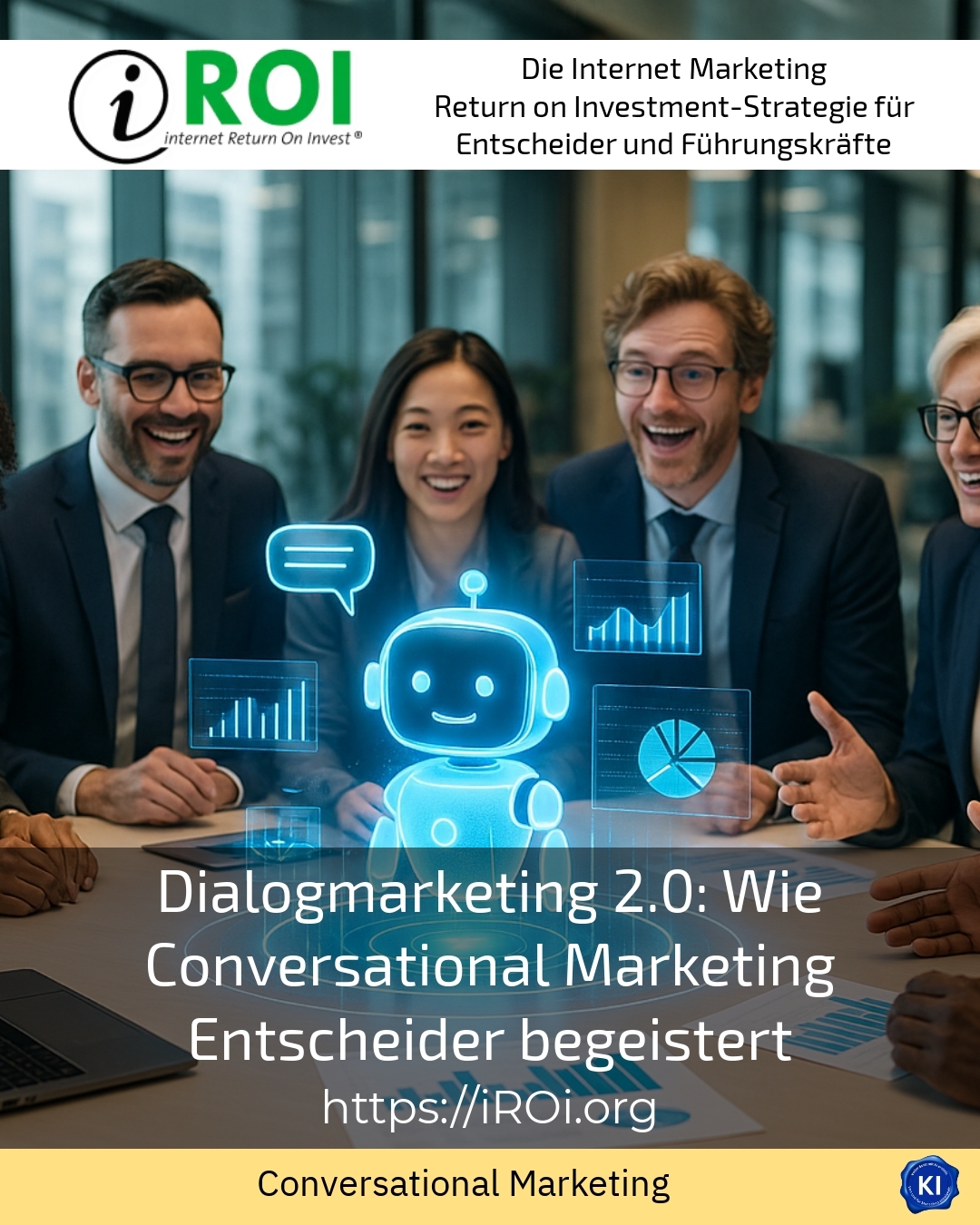How dialogue-oriented communication inspires decision-makers in marketing
In today's world, individualised communication is becoming increasingly important. Especially when it comes to effectively reaching decision-makers in marketing, the modern dialogue-oriented approach helps to build lasting relationships and identify precise needs.
The importance of direct communication in modern marketing
This form of marketing is characterised by a direct, targeted exchange with customers that goes beyond the mere communication of information. A dialogue is created in which the reactions and needs of the recipients can be recorded immediately. This gives companies the opportunity to personalise and contextualise content in order to better arouse interest and trigger decisions more quickly. The feedback from the target group is immediately visible, which makes it much easier to manage marketing strategies.
It is particularly important to choose communication channels carefully - whether telephone calls, emails, social media or face-to-face conversations. The mix of different channels ensures a greater reach and at the same time allows the respective format to be optimally adapted to the target group. This multi-channel approach maximises relevance and reduces wastage.
How personalised messages convince in dialogue marketing
A key success factor lies in the individualisation of messages. If content is tailored precisely to the needs and interests of the decision-makers, they feel better addressed and are more willing to enter into dialogue. This can be achieved, for example, by collecting data on preferences or behaviour in advance, which serves as the basis for the design of the communication.
In the B2B sector, many clients report that this personalised approach often helps to speed up the decision-making process and strengthen trust in the company. It is important to create a signalling effect without being intrusive - a balancing act that can be strengthened by experienced support.
Best practice at company XYZ (name changed due to NDA contract)
A provider from the technology sector relied on a campaign in which personalised email series with specific application examples were sent out. By combining this with accompanying telephone calls, the relevance and benefits for the respective decision-makers could be convincingly presented. The direct feedback from the recipients enabled continuous optimisation of the content and led to a significantly higher completion rate.
Best practice at ABC (name changed due to NDA contract)
A service provider in the service segment integrated social media channels into its dialogue-oriented strategy. Targeted posts and interactive live sessions were used to establish contact with decision-makers. The feedback from the conversations was seamlessly translated into customised offers, which significantly improved retention and the closing rate.
Best practice at DEF (name changed due to NDA contract)
A medium-sized company relied on the use of chatbots to supplement the dialogue process. These automated tools answered initial questions and provided interesting impulses to keep the dialogue lively and continuous. This approach proved to be very supportive, especially for decision-makers who are very busy.
Strengthening long-term customer relationships through dialogue
In addition to the short-term response, the focus is on building lasting relationships. It is also often crucial for decision-makers to not only be contacted once, but to receive continuous added value. Regular and relevant contact creates trust and keeps the relationship alive.
Analysing and evaluating communication data can help to constantly improve efficiency and respond to new requirements. It has been repeatedly shown that professional support can provide valuable impetus in this process and is often used by clients to conserve internal resources and bring in external expertise.
My analysis
The dialogue-oriented approach in modern marketing significantly supports decision-makers in communicating their needs more clearly and reaching well-founded decisions more quickly. Personalised, cross-channel communication based on feedback promotes deeper customer relationships and increases the efficiency of marketing measures through targeted content. Support and advice throughout the entire process can help companies to successfully overcome these challenges without making exaggerated promises.
Further links from the text above:
[1] Dialogue marketing & dialogue advertising: Strategies for more dialogue - we dot
[3] What is dialogue marketing? Definition, advantages and application - Haufe Akademie
[5] Dialogue Marketing - Mainz - 2HM Business Services
For more information and if you have any questions, please contact Contact us or read more blog posts on the topic TRANSRUPTION here.
















